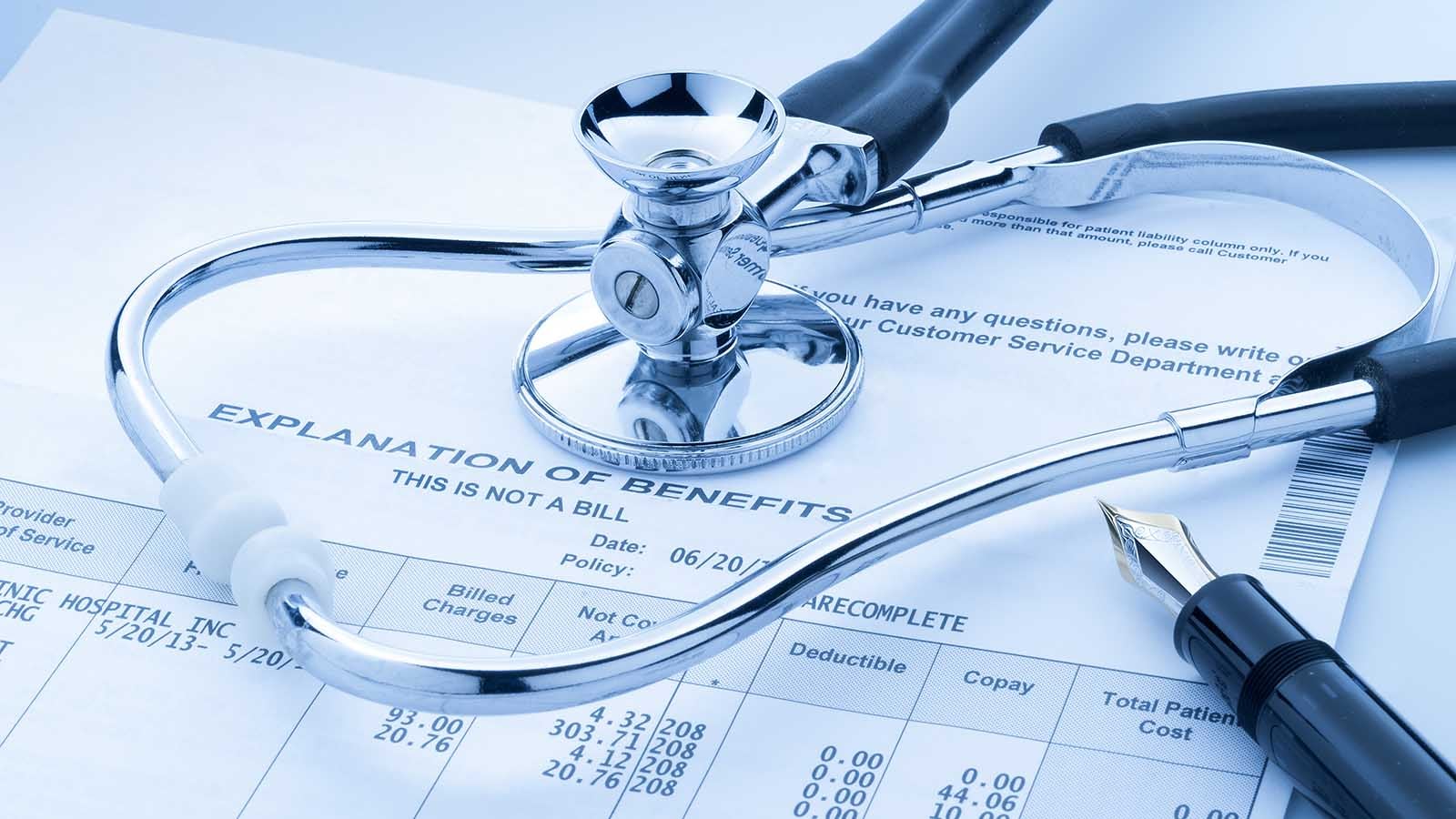These days, the healthcare stocks are looking pretty healthy compared to stocks in other spaces. Despite political pressures about lowering costs, “Medicare for All” and importing drugs, the sector has been riding high on a wave of optimism and growth. Demand for various healthcare solutions continues to rise as our aging population simply requires more. And that story is pretty much the same across the world.
Even better is that recent market volatility has sent many investors into healthcare stocks for their high cash flows and strong dividend potential. Many healthcare stocks have long been dividend champions — offering both high initial yields and overall strong dividend growth. For investors looking for income and the ability to keep that income rising over the long haul, healthcare stocks can’t be beaten.
The best part is that the sector’s overall growth rates don’t seem to be slowing anytime soon. That makes healthcare a prime destination for long-term investors.
So, which healthcare stocks have great growth trajectories and can pay you plenty of dividends for the long-term? Here’s a prescription for five that fit the bill.
Healthcare Stocks to Buy Today: Baxter International Inc (BAX)
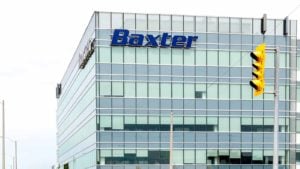
Dividend Yield: 1.1%
If you’ve ever been in the hospital, there’s a good chance that you’ve used products made by Baxter International (NYSE:BAX). That bag of Ringer’s solution connected to your I.V. is one of its most famous products. However, Baxter’s catalog spans not only all the stuff needed for running intravenous drugs, including the tubing, pumps and connectors, but also a variety of premixed drugs and therapies as well.
Those bags of basic Ringer’s solution, tubes, and other hospital must-haves create plenty of repeat orders from facility administrators. You can’t really operate a hospital without them. As a result, BAX ships more than one million sterile units each day.
This niche has served BAX well over the years and has made it a profit machine. Last quarter, Baxter saw a 4% jump to its operational revenues and managed to see an adjusted profit gain of 16% year-over-year. This follows great results for the first quarter of 2019 and the fourth quarter of last year. These wins plus its recent top-notch results allowed management to boost its full-year 2019 earnings guidance.
And there’s a good chance that it’ll beat even those better numbers. BAX has several new approved products hitting the market this year, including the only intravenous insulin product Myxredlin and new nutritional products. Meanwhile, Baxter is poised to see growth from increased home dialysis patients.
With strong revenues already in the tank and future growth on the horizon, BAX should be able to keep growing its dividend as well. While it only yields 1.1% today, that payout has increased by 156% over the last 10 years.
Bristol-Myers Squibb (BMY)
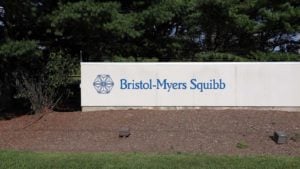
Dividend Yield: 3.43%
The major pharmaceuticals are some of the best healthcare stocks to comb for dividends and Bristol-Myers Squibb (NYSE:BMY) could be one of the best. The firm has a huge portfolio of drugs, including many blockbusters than produce ample amounts of cash flow. That plus its 3.43% yield is worth the price of admission alone. However, the real reason to buy BMY is its status as a major cancer fighter.
That title comes from blockbuster cancer drug Opdivo. The oncology medicine pulls in more than $2 billion in quarterly revenues for the firm and continues to see growth. Last quarter, sales of Opdivo managed to grow by 12%. Meanwhile, Bristol-Meyers continues to pivot the success of Opdivo in other directions as well. And we can’t forget the other cancer fighters under its umbrella — such as Yervoy — which also grew by double digits.
The best part is BMY is going to need a bigger oncology umbrella. That’s because of its pending buyout of Celgene (NASDAQ:CELG). CELG’s portfolio and pipeline of cancer drugs will fit perfectly with BMY’s. While the integration and antitrust issues are taken a bit longer than expected, the deal is moving forward and when it’s finally done, Bristol Meyers will have one of the best overall cancer portfolios around. This should lead to plenty of growth down the road. Especially when considering that the government may have little ability to regulate them.
For income seekers, this could make BMY a top healthcare stock to buy for years’ worth of dividend growth.
Physicians Realty Trust (DOC)

Dividend Yield: 5.3%
It’s not just the drugs or equipment in a hospital that can pay some hefty dividends. The owners of the hospital itself could be the real income play. And that makes Physicians Realty Trust (NYSE:DOC) one of the best sleepier healthcare stocks to buy.
DOC is a real estate investment trust (REIT) that owns 250 properties across 30 different states. The bulk of these — around 93% of its total portfolio — are medical office buildings. Medical office buildings are one of the more stable varieties of medical properties as they are generally constructed for this purpose only. Secondly, most of DOC’s properties are signed to long-term leases and are located on major health campuses that are affiliated with leading health systems. This provides a very stable base of rental income for the REIT’s bottom line.
Even better is that 78% of DOC’s portfolio is triple-net leased. This holy grail of leases means that tenants are responsible for paying items like taxes, maintenance and insurance costs. This provides better margins and cash flows for DOC’s buildings. Those cash flows have been growing. since its IPO in 2013, DOC’s FFO has grown by a staggering 195%. And while that torrid growth has slowed a bit in recent years, the healthcare stock still pumps out plenty of cash to fund its steady dividend. Moreover, DOC continues to use its strong balance sheet to perform smart M&A transactions to boost its portfolio further.
In the end, Physicians Realty Trust is a great healthcare stock to add some yield to your portfolio.
Cardinal Health (CAH)
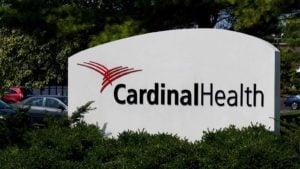
Dividend Yield: 4.42%
Truth be told, Cardinal Health (NYSE:CAH) has a few warts and isn’t a pristine member of the best healthcare stocks club. The firm’s two main lines of business — drug distribution and medical devices — aren’t doing so hot right now. For one thing, the distributors are being taken down as they are the main targets of lower-price political punditry, while the kinds of devices it makes are directly in the line of fire from Medicare for All plans. Add in pending opioid legislation and Cardinal has been hit hard. Shares of CAH are around 23% lower from their peaks this year.
But the drop has pushed shares into bargain territory. Today, CAH can be had for a P/E of under 10 and a dividend yield of 4.42%. That’s dirt cheap, especially considering that its situation may not be that bad.
For one thing, CAH is expected to see steady growth. As one of the space’s largest distributors of drugs, including low-price generics, the firm has an entrenched position among hospitals and doctors. Cardinal did see its full-year revenues increase by 6% to a whopping $145.5 billion for fiscal 2019. And that leadership position throws off a lot of cash. Adding its low debt compared to peers and CAH has plenty of wiggle room to navigate the challenges, with a payout ratio of just 40%. Right now, it’s priced as it won’t be able to survive. That’s just ridiculous.
While it may seem like a risky play, CAH is priced cheap enough and it has a strong enough yield that it’s worth the gamble.
Becton Dickinson (BDX)
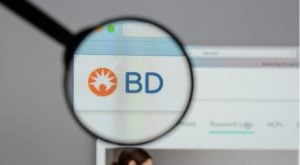
Dividend Yield: 1.25%
On the surface, Becton Dickinson (NYSE:BDX) looks like one of the most boring healthcare stocks. That’s because the firm is one of the largest producers of so-called sharps products. We’re talking needles and syringes.
BDX’s product catalog spans everything from insulin needles and catheters to more advanced regional anesthesia and drug delivery products. The real win for Becton is that these items are one-time only products. Just like Baxter, hospitals and doctors have to keep calling their BDX sales rep for more. This niche produces ample cash flow and its integration of rival Bard only boosted its catalog further.
But BDX isn’t simply staying in its lane. In recent years, it has expanded its portfolio into some high-tech devices. This includes intravenous pumps, surgery products and even PCR/life science equipment. These divisions have been growing nicely and are starting to contribute significantly to Becton’s bottom line.
The best part is that BDX’s ample cash flows are allowing it to pay down the debt it took out to buy Bard faster than expected. Management expects to use that future cash flows to fund tuck-in acquisitions, conduct buybacks and boost its dividend further. Already, BDX has grown its payout by 42% over the last five years.
Given its steady revenues and future potential, BDX makes an ideal dividend growth play among the healthcare stocks.
At the time of this writing, Aaron Levitt did not hold a position in any of the aforementioned securities.
